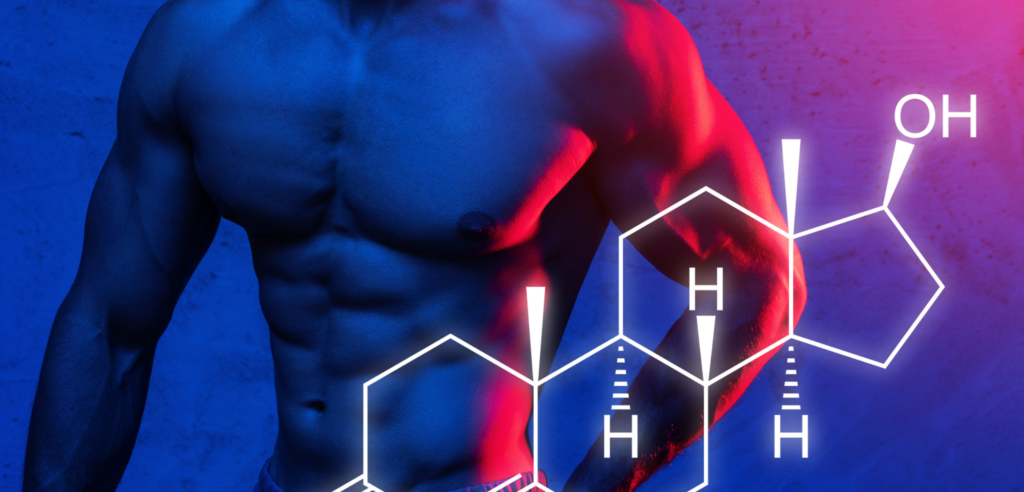In the world of scientific research,
peptides continue to emerge as powerful tools to address a range of health-related challenges.
Two peptides that are attracting particular attention are Selank and Semax.
These peptides, developed in Russia, have shown significant potential in improving cognitive function and treating a range of neurological conditions.
Selank: A Powerful Anxiolytic Peptide
Selank is a peptide developed by the Institute of Molecular Genetics of the Russian Academy of Sciences.
It has been shown to influence the concentration of monoamines in the brain, modulate the activity of certain enzymes involved in monoamine metabolism, and modify serotonin metabolism.
This peptide has pronounced anxiolytic activity and a positive effect on memory and cognitive learning.
Selank a synthetic analog of a small peptide produced by the human immune system, tuftsin.
Tuftsin is a terapeptide produced primarily in the spleen.
It is named after Tufts University (near the city of Boston), where it was isolated in 1970 by scientists Najjar and Nishioka, and its biological activity refers mainly to immune function.
Tuftsin deficiency can be congenital (inherited) or consequent to splenotomy (spleen removal) and causes increased susceptibility to certain infections.
Studies in this regard were done by Najjar in the second half of the 1980s on patients with recurrent infections but no apparent immune abnormalities and who surprisingly responded positively to gamma-globulin treatment.
Selank is known for its ability to stabilize mood, improve cognitive function, and increase resistance to stress.
Selank may also be useful in treating disorders such as anxiety and mood disorders because of its ability to affect neurotransmitters in the brain.
In addition, unlike many anxiolytic drugs, Selank does not cause addiction or adverse side effects.
Selank has been tested in clinical trials as a potential treatment for generalized anxiety disorder.
It has profound anxiolytic effects and improves memory and learning.
It has also been shown to have beneficial effects on pain perception.

Benefits of Selank:
Anxiolytic effects:
Selank is known for its anxiolytic properties. It can help reduce stress and anxiety without causing drowsiness or sedation.
Improved memory and learning:
Selank can improve cognitive function, including short-term memory and learning ability.
Improvement of the immune system:
Selank may stimulate the immune system, making it potentially useful in fighting infections.
Gastric protection:
Selank may have protective effects on the gastrointestinal tract, which could be helpful for people with ulcers or other gastrointestinal conditions.
Help in withdrawal from alcohol and opioids:
Selank has been used to help reduce withdrawal symptoms from alcohol and opioids.
Neuroprotective effects:
Selank may have neuroprotective effects, which means it can help protect neurons from damage or degeneration.
Mood enhancement:
Selank may have antidepressant effects, helping to improve mood and general well-being.
Research has shown that Selank can affect learning and memory processes, the ability to concentrate, and cognitive efficiency.
The peptide has been shown to have a positive effect on the immune system, increasing the body’s resistance to infection.
Rat studies show that of 84 genes known to be linked in some way to GABA signaling, seven are strongly modulated by Selank and 45 show some change in expression when the peptide is administered.
Overall, 52 genes related to GABA signaling are influenced by Selank to some extent.
These results indicate that Selank can directly influence the expression of genes in nerve cells and probably produces effects by changing the affinity of the GABA receptor for GABA.
Selank can suppress the gene responsible for the production of the inflammatory cytokine IL-6.
The above effect has been seen only in patients with depression and does not appear to occur in healthy individuals.
This suggests that Selank might be useful in treating people with anxiety-asthenia disorders, serious disorders in which anxiety is associated with fatigue, headaches, palpitations, high blood pressure, nerve pain, and depression.
Research in rats revealed that the peptide regulates the expression of about 34 genes involved in the inflammatory process.
These genes affect chemokines, cytokines and receptors for both.
In particular, Selank has been shown to alter the expression of BcI6, a gene that is strongly involved in the development of the immune system.
Selank appears to improve cognitive ability by direct pathways.
Research on rats trained with food rewards and injected with saline or Selank showed that Selank increases the stability of the memory trace and thus improves the memorization process.
Importantly, this benefit was seen independent of the rats’ anxiety levels, indicating that the peptide has effects beyond its ability to simply reduce stress related to memory impairment.
A 2008 study published in PubMed examined the effect of Selank on interferon production in the blood of rats involved in the study.
The study authors found that Selank increased interferon production, suggesting that it may have an immunomodulatory effect.
This could explain some of its nootropic properties, since interferon plays an important role in regulating nervous system function.
Another 2016 study published in PubMed examined the effect of Selank on gene expression in the brains of rats.
The study authors found that Selank altered the expression of several genes involved in the transmission of GABA, a neurotransmitter in the brain.
These changes in gene expression could underlie the anxiolytic properties of Selank.
In addition, the study found that the effect of Selank is similar to that of anxiolytic drugs, but is not accompanied by the undesirable side effects of classic benzodiazepines such as amnesia, withdrawal and dependence.
Selank might have a mechanism of action similar to that of benzodiazepines, which are allosteric modulators of the GABA receptor, but without the side effects of the latter.
In summary, Selank is a nootropic peptide with anxiolytic properties and potential immunomodulatory effects.
Studies suggest that it may act by altering gene expression in the brain and modulating GABA neurotransmitter function.

Semax: Cognitive Enhancer and Nootropic Peptide
A nootropic is a substance that can improve cognitive function, particularly memory, creativity, and motivation, in both healthy individuals and those suffering from neurological disorders.
Nootropics can be natural or synthetic and are used with the goal of improving mental performance.
Some common examples of nootropics include caffeine and modafinil.
Nootropics are generally designed to do one of two things: protect brain health over the long term, or provide an immediate boost to your mental performance.
Imagine that there is a peptide that can do both at the same time, safely and without side effects.
A molecule that combines safety and efficacy, backed by more than 40 years of clinical research and appreciated by biohackers around the world.
This peptide exists, comes directly from Russia, and its name is Semax.
Semax, (like its “cousin” Selank) was developed by the Institute of Molecular Genetics of the Russian Academy of Sciences.
In a world where the global brain health market is expected to reach $11.6 billion by 2024, we need something that not only promises, but actually delivers tangible results.
Semax, has all the characteristics to be an indispensable tool for anyone who wants to maximize their cognitive well-being.
Semax is a synthetic derivative of adrenocorticotropic hormone (ACTH).
From the studies performed and the anecdotal experiences of users, it is shown that this peptide contributes to increasing immune function, protecting neurons, and improving cardiovascular function.
The peptide would also appear to bring significant benefits in pain control and blood clotting.
Semax has been shown to have benefits in the treatment of stroke and in cases of cognitive impairment, dementia and optic nerve inflammation.
It has also been tested as a potential immune system stimulator and has been shown to have antidepressant and anxiolytic properties.
Research has shown that Semax increases levels of brain-derived neurotrophic factor (BDNF) in the central nervous system, as well as serotonin and dopamine levels.
Brain-Derived Neurotrophic Factor (BDNF) is a protein that belongs to the neurotrophin family, chemicals that act to support the growth, survival, and differentiation of neurons in both the central and peripheral nervous systems.
BDNF is particularly important for synaptic plasticity, which is the ability of synapses (the connection points between neurons) to strengthen or weaken over time in response to an increase or decrease in their activity.
This process is critical for learning and memory.
In addition, recent studies have suggested that BDNF may play a role in regulating mood, appetite, and other functions, and that low levels of BDNF may be associated with conditions such as depression and schizophrenia.
Benefits of Semax:
Improved cognitive function:
Semax is known to improve memory, attention, and learning abilities. It may also help improve mental stamina during times of stress or fatigue.
Neuroprotective effects:
Semax can help protect neurons from damage, which can be especially helpful in conditions such as stroke or head injury.
Treatment of ADHD:
Some studies suggest that Semax may be useful in treating ADHD by improving attention and reducing hyperactivity.
Reduction of withdrawal symptoms:
Semax has been used to help reduce opioid withdrawal symptoms.
Anxiolytic effects:
Semax can help reduce anxiety without causing drowsiness or sedation.
Immune system enhancement:
Semax may have stimulating effects on the immune system.
Treatment of chronic neurological conditions:
Semax has been studied for its potential in treating neurodegenerative diseases such as Alzheimer’s disease and Parkinson’s disease.
Semax is used in Russia to treat acute cerebral hypoxia, such as in stroke or traumatic brain injury.

In concrete terms, Semax stimulates changes in the expression of 24 different genes related to blood vessel function in the brain and spinal cord.
These genes regulate everything from smooth muscle cell migration to red blood cell formation and the generation of new blood vessels.
This correlation may explain why Semax has shown neuroprotective properties in stroke.
It appears that the peptide promotes neuron survival, stabilizes mitochondria and thus energy production, and improves nutrition supply to the brain.
Research conducted in Russia on patients involved in rehabilitation after a stroke indicates that Semax accelerates the rate at which brain function recovers.
According to Gusev et. al, “Early administration of Semax increases plasma levels of BDNF, accelerating functional recovery and improving motor performance.”
It is possible that Semax, by stimulating BDNF, improves neuroplasticity in the brain and makes it easier for uninjured regions of the brain to learn tasks that were previously the responsibility of damaged regions.
Semax promotes attention and social function.
A study evaluated the effectiveness of Semax and the timing of rehabilitation on the dynamics of plasma BDNF levels, motor performance and Barthel index score in patients after ischemic stroke.
The results showed that administration of Semax, increased plasma BDNF levels, which remained high throughout the study period.
Semax administration (and the resulting high BDNF levels) accelerated cognitive improvement and improved the final outcome of the Barthel score index.
The Barthel score is a widely used tool to measure an individual’s ability to perform activities of daily living (ADLs). It is often used in the assessment of patients with physical disabilities, particularly those who have suffered a stroke.
A positive correlation has been seen between plasma BDNF levels and the Barthel score, as well as a correlation between early rehabilitation and improved motor performance.
In summary, Semax has been shown to have positive effects on neuroplasticity, memory, and rehabilitation after ischemic stroke.

The Selank – Semax Stack
The combination of Selank and Semax is particularly useful for those who wish to improve mental clarity, memory and concentration.
This combination has also been shown to be effective in reducing anxiety and depression.
The combination of Selank and Semax is a powerful ally for anyone aspiring to enhance their mental clarity, memory and ability to concentrate.
These two peptides, working in synergy, can help optimize cognitive function, making it easier to process information and facilitating learning.
In addition to these nootropic properties, the combination of Selank and Semax has been shown to have a significant impact in counteracting states of anxiety and depression.
Selank and Semax can help regulate emotional balance, reducing feelings of stress and promoting an overall sense of well-being.
But the benefits do not stop there.
Research has shown that treatment with Selank and Semax can be especially beneficial for people with post-traumatic stress disorder (PTSD).
These peptides can help mitigate PTSD symptoms such as anxiety, insomnia, and difficulty concentrating, thereby improving the quality of life for sufferers.
Finally, Selank and Semax can offer valuable support to those who are going through the difficult journey of substance withdrawal.
They can help manage the symptoms of ‘withdrawal, making the recovery journey more manageable.
In conclusion, the combination of Selank and Semax offers a wide range of benefits, ranging from cognitive enhancement to support in treating mental health conditions and addictions.
However, as always, it is important to remember that each individual is unique and that the effectiveness of these peptides may vary from person to person. Therefore, it is always advisable to consult a health care professional before starting any new treatment.
Use of Selank
Selank is a peptide that is administered as a nasal spray or subcutaneous injections.
It is important to note that the use of Selank should be limited to nasal or subcutaneous use, as the peptide, when taken by mouth, would be easily degraded by the digestive system, thus losing its effectiveness.
In contrast, when taken through the nostrils or subcutaneously, Selank is more likely to be absorbed and cross the blood-brain barrier, thus exerting its anxiolytic effects on the nervous system.
Dosage of Selank
The only reliable source for a dosage of Selank comes from renowned peptide physician Dr. William Seeds, who in his book “Peptide Protocols, Volume 1” recommends two different modes of administration:
- Subcutaneous Injection: 100-500 mcg of Selank once a day.
- Intranasal (via nasal spray): 750-1,000 mcg daily, divided into 3 different intakes.
However, some people report experiencing the anti-anxiety effects of Selank peptide using as little as 250 mcg administered intranasally.
Results will vary as each individual is biochemically unique, but I personally would not exceed Dr. Seeds’ recommendations as it is possible to become desensitized to a peptide such as Selank.
As always, one should find the minimum effective dose needed for satisfactory results and then slowly increase.
Treatment with Selank can last up to two weeks and can be repeated after an interval of 1-3 weeks until improvement of the condition is observed.
As for side effects of Selank, research to date has found very few and negligible sides.
Use of Semax
Semax, a potent nootropic that could have therapeutic applications that go far beyond increasing cognitive abilities.
Before focusing on its nootropic benefits, it is important to highlight some of the other potential medical applications of Semax currently being studied:
- It could help reduce withdrawal symptoms following opioid abuse.
- It could have a positive impact on the body’s immune response.
- It has shown potential anti-ulcer properties in patients with refractory peptic ulcers.
- Has shown beneficial effects in reducing epilepsy.
- It regulates the organization of circadian rhythms of hormones such as cortisol, testosterone, and prolactin.
These are just some of the potential applications of Semax, and in my opinion, we are only at the beginning of the journey to discover all the therapeutic value this nootropic has to offer.
Last but not least, Semax is known to be used, outside of official indications, as a cognitive enhancer, with particular reference to conditions such as ADHD and anxiety.
Dosage of Semax
Recommended doses for Semax seem to vary widely, so we always rely on what Dr. William Seeds, in his book “Peptide Protocols Volume 1,” writes:
- 500-1000 mcg once daily when taken intranasally
- 100-300 mcg once daily if injected subcutaneously.
As with its “cousin,” Selank, treatment with Semax can last up to two weeks and can be repeated after an interval of 1-3 weeks.
Semax is generally well tolerated and no particular side effects have been reported.

In conclusion, exploring the world of peptides such as Selank and Semax opens us to a universe of possibilities in the field of health and well-being.
These powerful biochemical tools, developed through advanced scientific research, offer new insights into improving our cognitive function, managing stress and anxiety, and addressing complex challenges such as post-traumatic stress disorder and substance withdrawal.
The journey through the properties and benefits of Selank and Semax has given us a better understanding of how these peptides affect our bodies, offering potentially revolutionary tools to improve our quality of life.
However, as always, it is critical to remember the importance of an informed and conscious approach.
Despite the alluring promises, it is essential to consult a health care professional before beginning any new treatment.
The world of peptides is vast and ever-evolving, and Selank and Semax are just two examples of how science is working to harness our bodies’ potential for healing and optimization.
We are only at the beginning of this exciting scientific adventure, and we look forward to what other discoveries the future holds.
Thank you for joining us on this journey of discovery of Selank and Semax.
We hope that the information shared in this article has provided you with a clearer and more complete view of these extraordinary peptides.
Please continue to follow us to stay updated on the latest news in the field of peptides and optimized health.







